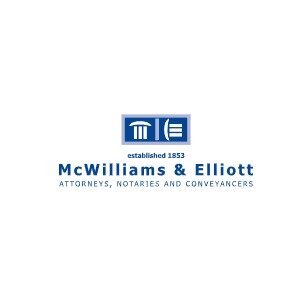Best Work Injury Lawyers in Port Elizabeth
Share your needs with us, get contacted by law firms.
Free. Takes 2 min.
List of the best lawyers in Port Elizabeth, South Africa
About Work Injury Law in Port Elizabeth, South Africa
Work Injury Law in Port Elizabeth, South Africa, also known as Occupational Health and Safety (OHS) legislation, primarily revolves around the Compensation for Occupational Injuries and Diseases Act (COIDA), 130 of 1993. The act ensures that all employers, including those in Port Elizabeth and throughout the country, are legally obliged to provide compensation for disablement caused by occupational injuries or diseases sustained or contracted by employees in the course of their employment, or death resulting from such injuries or diseases.
Why You May Need a Lawyer
You might need a lawyer specializing in workplace injuries if you've been injured on the job and are experiencing difficulty in claiming your benefits under COIDA. Issues might include delays in payment, disputes concerning the extent of disablement, or even disputes about the nature of the illness or injury. In addition, if your employer is neglecting their duty to comply with necessary safety measures or if you're facing retaliation for reporting unsafe working conditions, a lawyer can help protect your rights.
Local Laws Overview
Key points of the local laws relating to work injury in Port Elizabeth fall under COIDA. It covers all accidents and occupational diseases that occur during employment. Employers are required to compensate workers for lost wages, medical expenses, and permanent disability. If an occupational injury or disease results in loss of life, the law ensures compensation for the employee's dependents. The law requires that employers register and make annual contributions to the Compensation Fund.
Frequently Asked Questions
Can I sue my employer for a work injury?
Under the COIDA, you typically can't sue your employer for an occupational injury. The Act protects employers from civil claims and provides employees with a swift and certain means of compensation. However, there may be exceptions in cases of gross negligence.
Can I claim for stress or psychological trauma at work?
The Act does include provisions to claim for occupational diseases including certain stress-related illnesses. But, successfully claiming for work-induced stress or psychological injury can be complex. Consult a lawyer for detailed guidance.
What if my employer doesn’t register with the Compensation Fund?
Employers are required by law to register with the Compensation Fund. If an employer doesn’t comply, they may face penalties or even imprisonment. As an employee, you're still entitled to compensation even if your employer isn’t registered.
Does COIDA coverage include casual and temporary workers?
The law applies to all workers, be they permanent, temporary, or casual. This includes domestic employees employed by multiple employers, provided they work more than 24 hours a month.
How long do I have to report a work injury?
An accident should be reported as soon as possible but no later than 12 months after the incident. Remember to always report an injury at work to your supervisor immediately, no matter how small it may seem.
Additional Resources
The Department of Employment and Labour is a significant body for additional resources related to work injuries, providing assistance and guidance on questions of labor law and the rights of workers. Another invaluable tool is the South African Labour Guide, an online resource that offers information, including details on COIDA.
Next Steps
If you need legal assistance with a work injury, you'll need to contact a lawyer specializing in work injury or Occupational Health and Safety law. Gather all pertinent information related to the injury, including medical reports, witness statements, and any correspondence with your employer or the Compensation Fund. Remember, expert assistance can help navigate this often complex process and ensure your rights are protected.
Lawzana helps you find the best lawyers and law firms in Port Elizabeth through a curated and pre-screened list of qualified legal professionals. Our platform offers rankings and detailed profiles of attorneys and law firms, allowing you to compare based on practice areas, including Work Injury, experience, and client feedback.
Each profile includes a description of the firm's areas of practice, client reviews, team members and partners, year of establishment, spoken languages, office locations, contact information, social media presence, and any published articles or resources. Most firms on our platform speak English and are experienced in both local and international legal matters.
Get a quote from top-rated law firms in Port Elizabeth, South Africa — quickly, securely, and without unnecessary hassle.
Disclaimer:
The information provided on this page is for general informational purposes only and does not constitute legal advice. While we strive to ensure the accuracy and relevance of the content, legal information may change over time, and interpretations of the law can vary. You should always consult with a qualified legal professional for advice specific to your situation.
We disclaim all liability for actions taken or not taken based on the content of this page. If you believe any information is incorrect or outdated, please contact us, and we will review and update it where appropriate.








